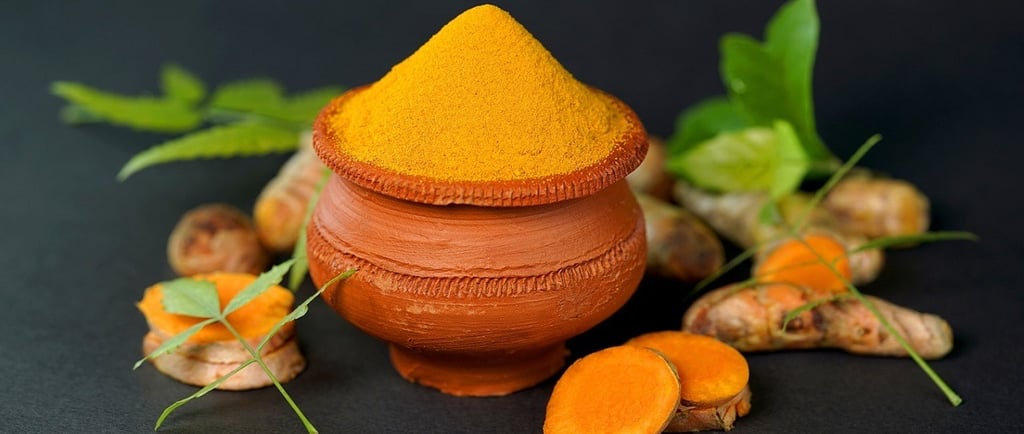Uses and Benefits of Turmeric
Turmeric contains “Curcumin”, a natural anti-inflammatory compound with antioxidant properties. It is good for the heart health. Read this mini blog to learn more!


Turmeric is a plant of the Ginger family, it is primarily grown in south-east Asia.
Turmeric comes from the root of the Curcuma longa plant, it is a yellow-colored spice.
It has several health benefits and enhances the flavor of many dishes.
Turmeric contains phytonutrients that can help neutralize the free radicals and protect the cells from damage.
Turmeric contains a natural compound called “Curcumin” which has anti-fungal and anti-cancer properties. Curcumin gives turmeric its yellow color.
In Indian Ayurveda, turmeric was used as a medicine for skin, digestive and respiratory issues.
Turmeric naturally contains around 3% curcumin, some available turmeric supplements can have up to 95% of curcumin.
You can consume turmeric by adding it to tea, coffee, soup, vegetables, lentils, etc.
According to U.S.D.A (United States Department of Agriculture) Turmeric contains the following macronutrients and Vitamins.
Turmeric also contains several minerals which are as follows.
Pros of Turmeric
1. Turmeric can help reduce inflammation.
2. It can act as a pain reliever and relieve arthritis pain.
3. Antioxidants in turmeric can prevent liver damage from toxins.
4. Turmeric can protect against pancreatic and prostate cancer.
5. Curcumin in turmeric can help improve heart health.
6. Curcumin can help slow down Alzheimer's disease.
7. Turmeric can act as an anti-depressant and can help reduce anxiety.
8. It is good for skin health and helps reduce acne and wrinkles.
9. Turmeric may help boost the immune system.
10. Curcumin in turmeric has anti-aging properties.
11. Regular intake of turmeric can improve memory and attention.
12. Turmeric has antioxidants and anti-bacterial properties to help reduce colds and flu.
Cons of Turmeric
1. Some turmeric powder can contain lead which is harmful to the nervous system.
2. Some commercially available turmeric may have added color to it.
3. Excess consumption may cause diarrhea, acid reflux, and upset stomach.
4. Excess use of turmeric supplements may increase the risk of kidney stones.
5. People with bleeding disorders should avoid turmeric, which acts as a blood thinner.
6. Turmeric limits iron absorption, avoid its consumption if you take iron supplements.
7. Pregnant women should avoid turmeric supplements as they can cause uterus contractions.
8. People having diabetes should consult their doctor as curcumin in turmeric might reduce blood sugar levels.
9. Turmeric can decrease testosterone levels and lower sperm movement.
Interesting Facts
1. Turmeric was used as a dye for clothing in ancient India.
2. India is the world’s largest producer and consumer of turmeric.
3. Because of its bright yellow color, turmeric is also called “Indian Saffron”.
4. Turmeric is often used in cosmetics for glowing skin.
5. In India, there is a marriage ritual in which turmeric is rubbed on the bride’s and groom’s skin.
